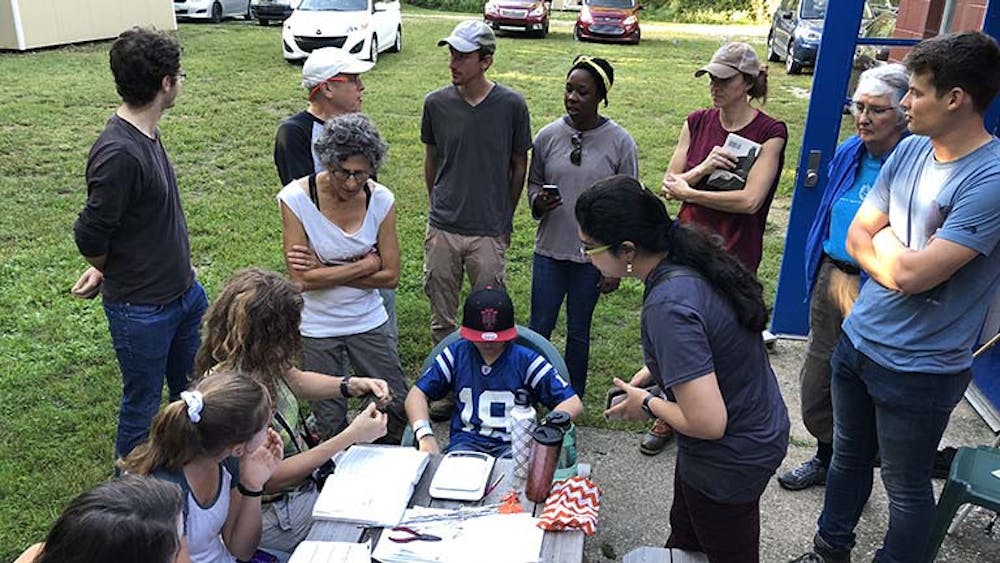Students For a New Green World and the Food Working Group are working together to encourage IU to commit to 25% Real Food by 2025. SNGW is campaigning to raise awareness among students while the Food Working Group, as part of Sustain IU, has been collecting data on the sustainability of food purchased by the university for years. Both are participating in the Real Food Challenge, a national movement that supports ethical, local and sustainable food systems.
According to the Sustain IU website, in order to qualify as Real Food any given product must meet four criteria: ecologically sound, humane, fair trade and locally produced. Both SNGW and the Food Working Group believe that institutions such as IU have the responsibility to use their many resources to support ethical food systems.
“The university itself has a lot of buying power,” said Emma Schuster, an intern with the Food Working Group. “If they can make a difference in a food system that is constantly getting bigger and less transparent and less connected, they should do their part to try and make everything a little more sustainable and a little more upfront.”
The Food Working Group has been working on the Real Food Challenge since 2013, but this year SNGW aims to bring new momentum to the movement by spreading awareness among students about the contents of their food and the importance of sustainable food systems.
While the Food Working Group collects data and conducts research, SNGW recently launched a campaign to raise student awareness of the Real Food Challenge and to ensure that students are aware of the food they are consuming.
Sophomore and vice president of SNGW Sidd Das is in charge of the Real Food initiative at SNGW. Das plans to increase transparency around which IU Dining dishes qualify as Real Food by working with IU Dining to create signage in dining halls and icons on GrubHub that identify Real Food items.
“We’re looking for any way possible that shows students what Real Food is and what options they have so that they can also consume responsibly and make an impact with what stuff they buy,” Das said.
Dr. Angela Babb was one of the first to spearhead the Real Food Challenge at IU as an undergraduate student in 2013. Even after graduating, Babb remained committed to the cause and continued to advocate for Real Food at IU as a faculty advisor with the Food Working Group.
Now Babb and others at the Food Working Group collect data and calculate the percentage of Real Food purchased by IU. Sustain IU currently reports that 10% of food purchased by the university qualifies as Real Food, but the Food Working Group and SNGW aim to implement a five-year plan that will increase that number to 25%.
Babb said she feels the current food system is unsustainable and corrupt due to the concentration of resources in the hands of a few powerful corporations. Through the Real Food Challenge she hopes to support local food systems that act ethically and contribute to the Bloomington community.
“We need to be forging a new path, a new sustainable food system, and supporting the farmers that are doing so by using organic methods and humane pasture-raised animals,” Babb said.
Babb agreed that increased student awareness of the Real Food Challenge could help to sway the university to commit to more Real Food by demonstrating that students care about sustainable food systems.
“To move an institution like IU, that’s so big, it’s going to take a lot of students and a lot of people coming together to support each other through peer education, through advocacy, through being vocal,” Babb said.






